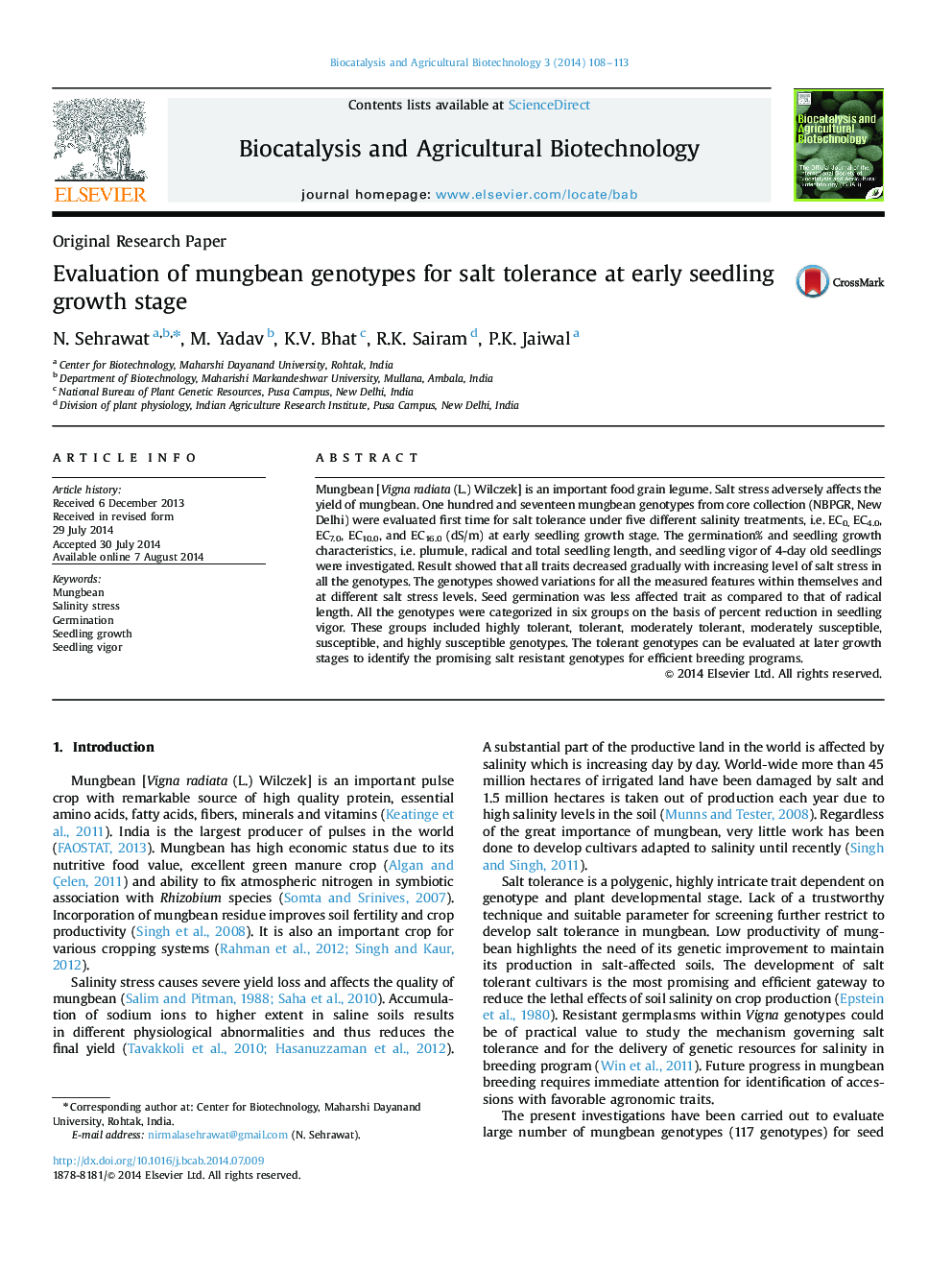| Article ID | Journal | Published Year | Pages | File Type |
|---|---|---|---|---|
| 10884473 | Biocatalysis and Agricultural Biotechnology | 2014 | 6 Pages |
Abstract
Mungbean [Vigna radiata (L.) Wilczek] is an important food grain legume. Salt stress adversely affects the yield of mungbean. One hundred and seventeen mungbean genotypes from core collection (NBPGR, New Delhi) were evaluated first time for salt tolerance under five different salinity treatments, i.e. EC0, EC4.0, EC7.0, EC10.0, and EC16.0 (dS/m) at early seedling growth stage. The germination% and seedling growth characteristics, i.e. plumule, radical and total seedling length, and seedling vigor of 4-day old seedlings were investigated. Result showed that all traits decreased gradually with increasing level of salt stress in all the genotypes. The genotypes showed variations for all the measured features within themselves and at different salt stress levels. Seed germination was less affected trait as compared to that of radical length. All the genotypes were categorized in six groups on the basis of percent reduction in seedling vigor. These groups included highly tolerant, tolerant, moderately tolerant, moderately susceptible, susceptible, and highly susceptible genotypes. The tolerant genotypes can be evaluated at later growth stages to identify the promising salt resistant genotypes for efficient breeding programs.
Related Topics
Life Sciences
Agricultural and Biological Sciences
Agricultural and Biological Sciences (General)
Authors
N. Sehrawat, M. Yadav, K.V. Bhat, R.K. Sairam, P.K. Jaiwal,
